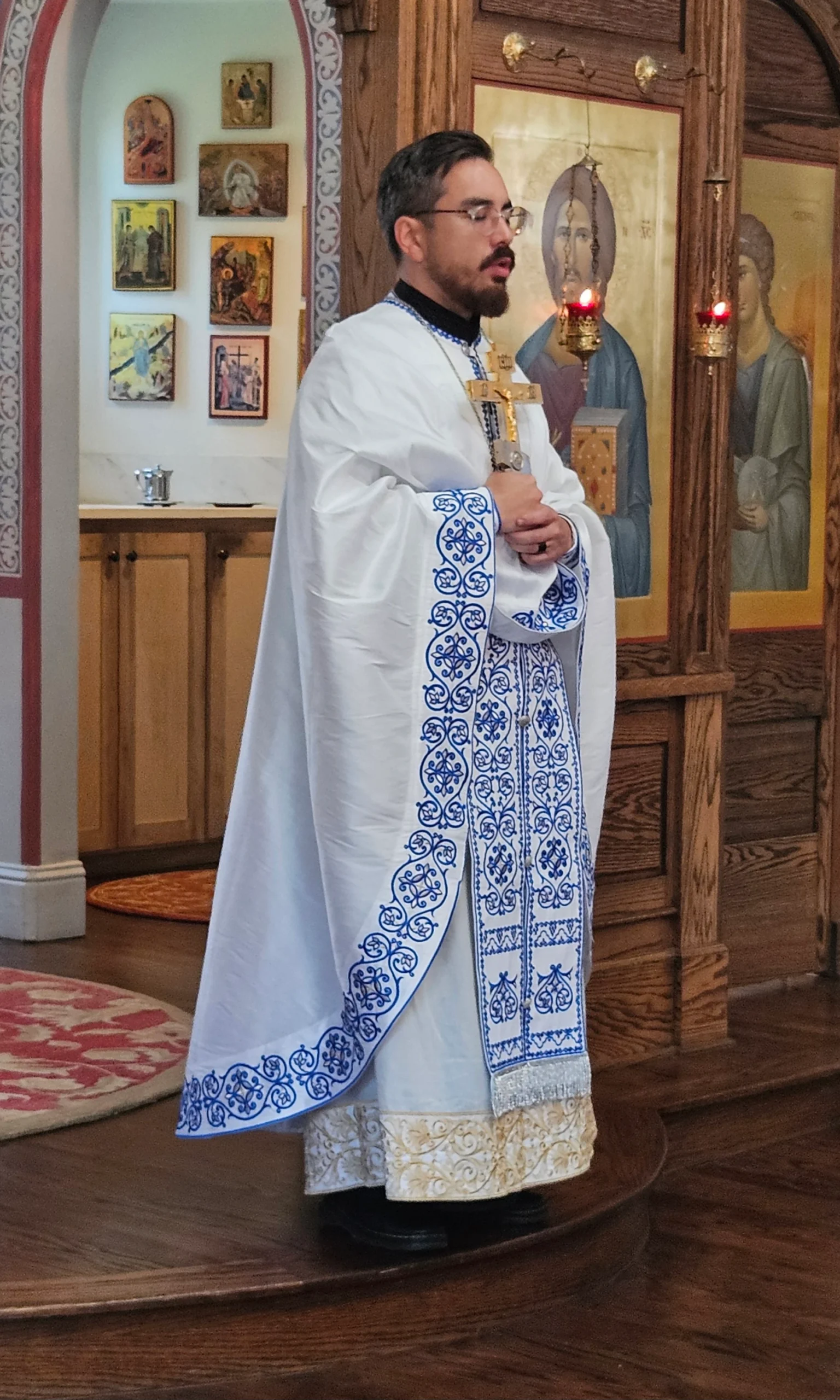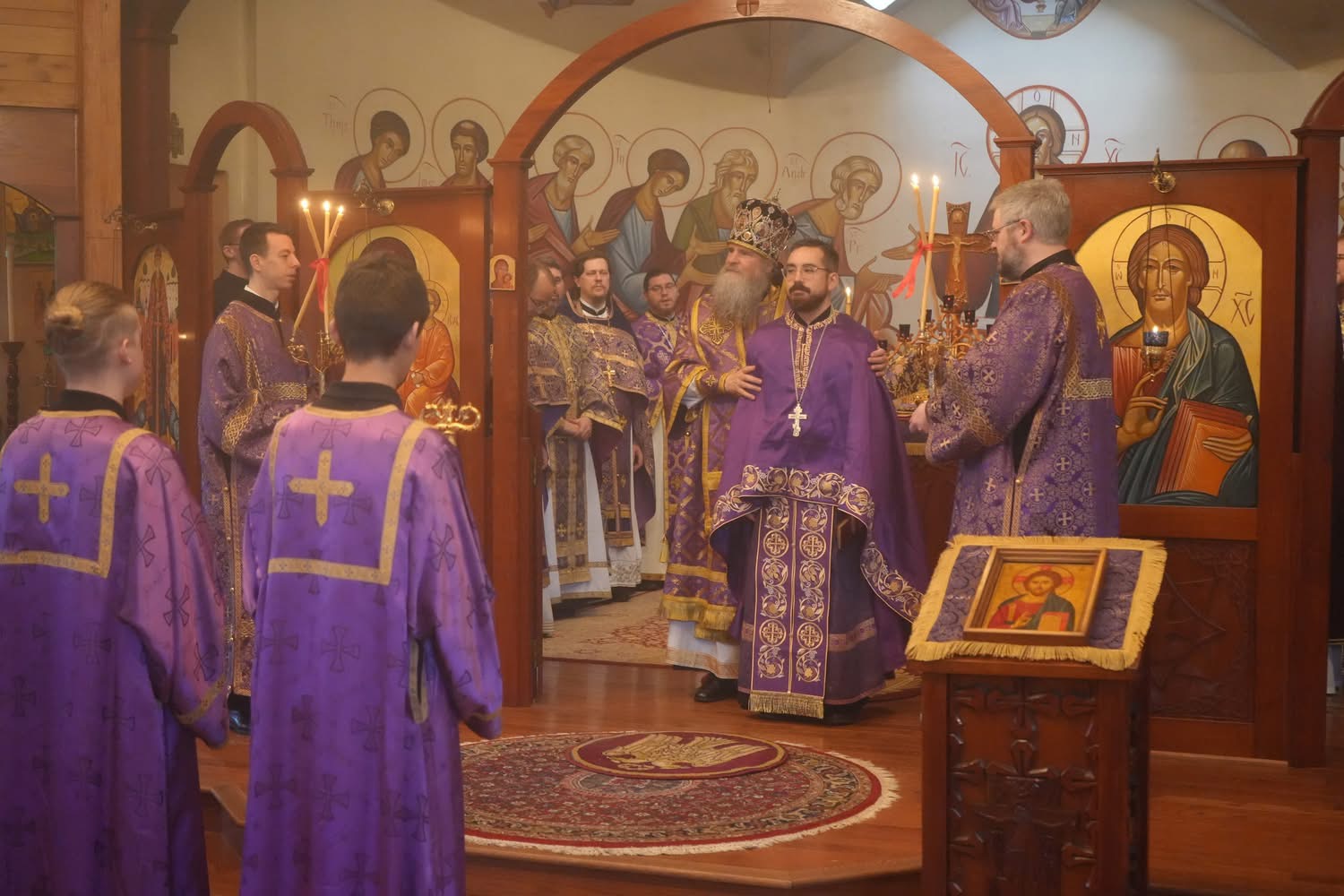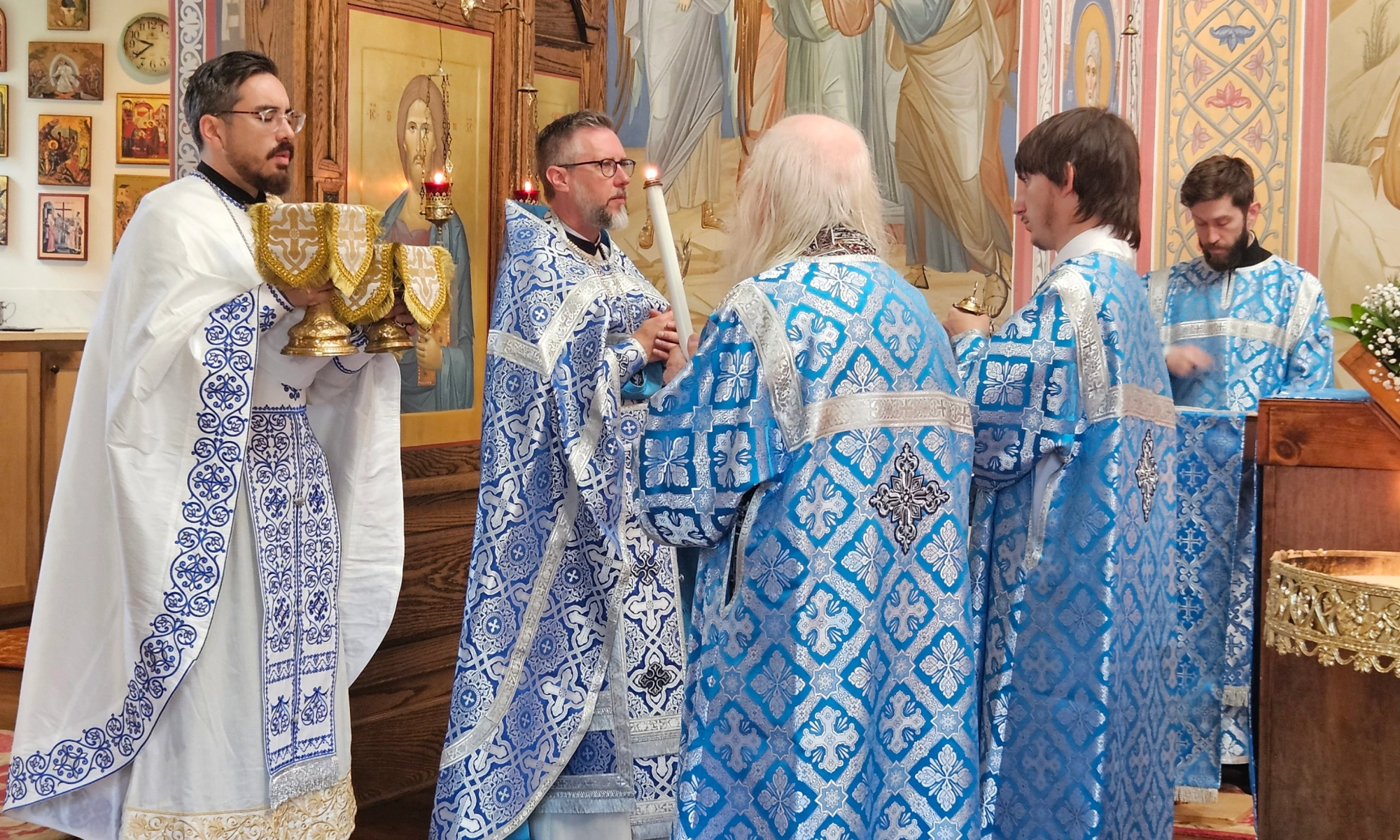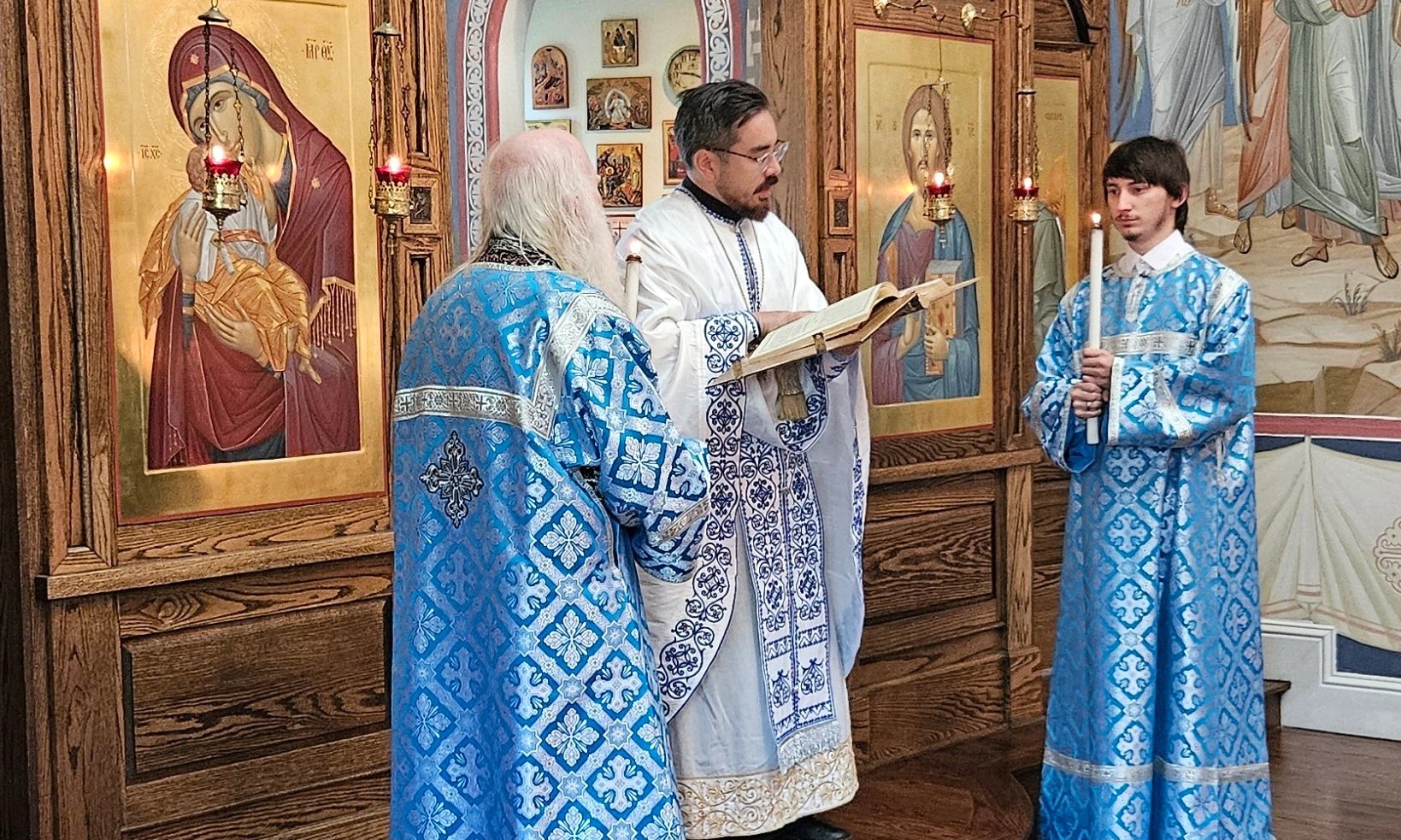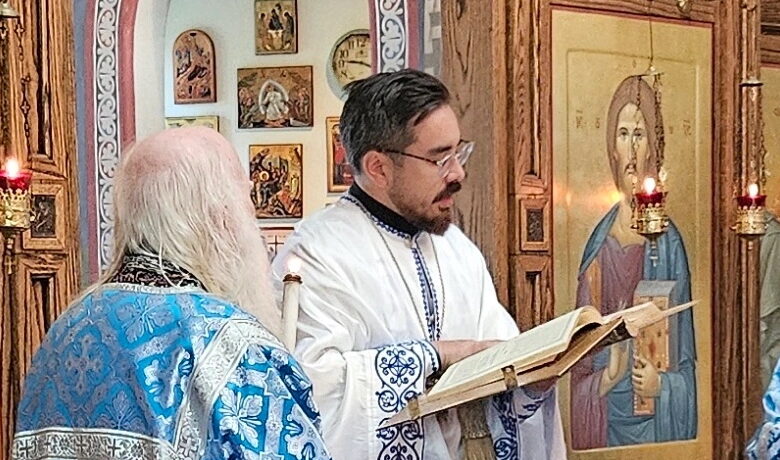The experience of seminary is a paradox. On the one hand, it is an incredibly enriching experience, filled with robust academic study, rich liturgical practice, deep community, and profound spiritual formation. On the other hand, seminary is something of an artificial environment– an educational construct far removed from the realities of ordinary Christian life. As crucial as seminary formation may be, spending three years separated from normal parish life and ministry is something of a gamble– who will I be when I re-enter the “real world?” How will my seminary experience and education translate into pastoral life? Will I even like it?
These are the questions that I considered when I finished the second year of my Masters of Divinity program at St Vladimir’s Orthodox Theological Seminary and prepared to begin my summer internship with the OCA Diocese of the South. My wife, two children and I were set to serve at three different parishes in three different states over the course of about three months. I had just been ordained to the priesthood a little over a month prior to the start of the internship. I had been a deacon for six years, so the shift in liturgical duties didn’t present much of a learning curve. It was the pastoral stuff– the hard stuff– that was a mystery to me. I had never been a priest in a parish. What is more, I had not lived as an Orthodox Christian in the Southern United States.
Our first stop was in Shreveport, LA at Holy Nativity Orthodox Church. Immediately, my family was welcomed with the warm and familiar embrace of Southern hospitality (my wife and I grew up in Texas). The first day we arrived we were greeted by parishioners bearing gifts of provisions from the local Kroger and Aldi to stock the bare pantry of our Airbnb, along with some toys for our children, who had left most of their belongings back at seminary for the sake of ease of travel on the road. The generous gift of material comforts, however, was dwarfed by the kindness and love we received from the Holy Nativity community. Fr Jason, the parish priest and dean of the Mississippi Deanery, embodied the hospitable spirit of the community and made the transition from seminary life to parish life remarkably easy. Very quickly, Fr Jason clearly answered the question of what it means to be a parish priest. His job is equal parts handy man, groundskeeper, small business owner, teacher, community volunteer, and Southern preacher (I’m probably leaving out a few). All of these roles he balanced with infectious joy– and the man doesn’t drink coffee. Suffice it to say, I got a very well-rounded orientation to the priesthood. From liturgical duties, preaching, and catechism, to trimming the church lawn with the (very fun) zero-turn ride-mower, I was given the full package of parish priest life. Above all of this, however, was the community of the faithful. Holy Nativity is blessed with a remarkable group of faithful, loving, Orthodox Christians dedicated to the life of Christ and the love of neighbor. Not only is the parish full of people who faithfully attend services, they offer service to the community in a variety of ways, including a parish-led food-distribution ministry. In the context of this active community life, the knowledge given me at seminary began to be distilled and applied, and the difference between theory and practice was made clear. Only that knowledge that is in the service of love and the building up of the community of faith is of pastoral use.
This was further emphasized in my second placement at St John of Chicago in Rogers, AR, where I was blessed to fill-in for the parish priest while he was on sabbatical for five weeks. It was here that I heard my first confessions and accompanied parishioners through the highs and lows of life. As in Shreveport, the community of St John was thriving and active, including weekly men’s group coffee meet-ups, regular weekday services, full spreads at post-liturgy agape meals, community-building events, and frequent individual meetings with parishioners over cups of coffee. What is interesting about stepping into a community to fill in for a pastor is that the influence and guidance of that pastor is extremely evident. In the case of Fr John, it was very clear that he was very well-loved and approached pastoral ministry in a sober, yet kind and personable manner. The community showed evidence of his pastoral influence and wise counsel, yet in a way that wasn’t heavy-handed or controlling. Toward the end of my time in Rogers, I was blessed to spend some time with Fr John and glean some of his wisdom. When asked about how to balance the pastoral responsibilities to both call to repentance and to comfort the faithful, he said that everything has to be centered upon and guided by the person of Christ. Christ is the one that knows how to meet people, to call them to take up the cross and to resurrect them. As long as priests continue to point to him, they fulfill this duty– whether at the altar, in preaching, or in pastoral counsel.
My final stop was a two-week stint in Tyler, TX, at St John of Damascus. Here, I was given the unique opportunity to observe the transition of the parish priest, Fr David, while he prepared to leave the community he served for seven years and assume his new assignment. What was immediately apparent was the love he had for the parish and they for him. St John is, like many Orthodox churches in the Diocese of the South, something of a “regional parish.” It is home to parishioners scattered throughout the East Texas area– some driving as far as two hours every Sunday. And many come every Sunday. The parish is packed with people, eager to encounter Christ. This dynamic means that the community is faced with the challenge of building a sense of cohesion and unity among a diverse group of people, the majority of whom come together only one day a week. Fr David shared that his pastoral ministry was guided by a commitment to being and remaining in communion with the people. This commitment, of course, is sustained by Christ, the only one that can hold such a group together. And the fruits of this commitment were evident. The parish was growing, not simply in numbers, but in maturity and love of Christ. Being able to get Fr David’s “retrospective” was extremely helpful for knowing what key elements make for good pastoral ministry– the chief of which was love.
These three communities gave me a full picture of parish ministry in my first months as a priest. To my great relief, I loved it. Within the first couple of weeks of the internship, my time at seminary and all the sacrifices my family has made (leaving family, employment, relationships, familiarity) felt justified. Over the course of the summer, my wife and I were reminded that this is why we were doing what we were doing– the life of community in the world, gathered around the chalice, being transformed into the broken Body of the Lord, from glory to glory. As invaluable as my formation at seminary has been, the education I have received only makes sense in this context. What is more, the internship experience reminded me that it isn’t the ability to cite Church Fathers and talk about mystical theology that actually matters. Rather, it is the challenge to actually live the teachings of the Fathers and transform the knowledge I’ve been given into actual spiritual experience that is necessary for a priest. No one is served by out-of-context Patristic quotes or ancient-sounding platitudes as a substitute for humble pastoral service rooted in love. And no one can learn to love without a community. The time I spent in these communities learning to love I consider to be an invaluable part of my pastoral formation, and I am so grateful for the opportunity to participate in the Diocese of the South summer internship program.
Gallery:
